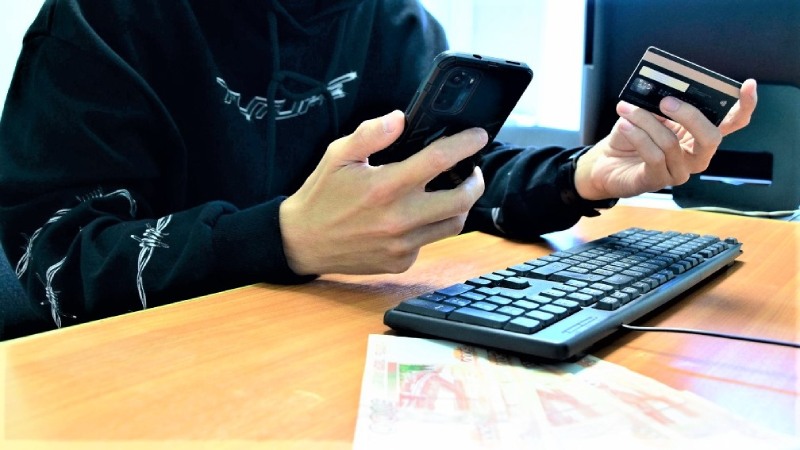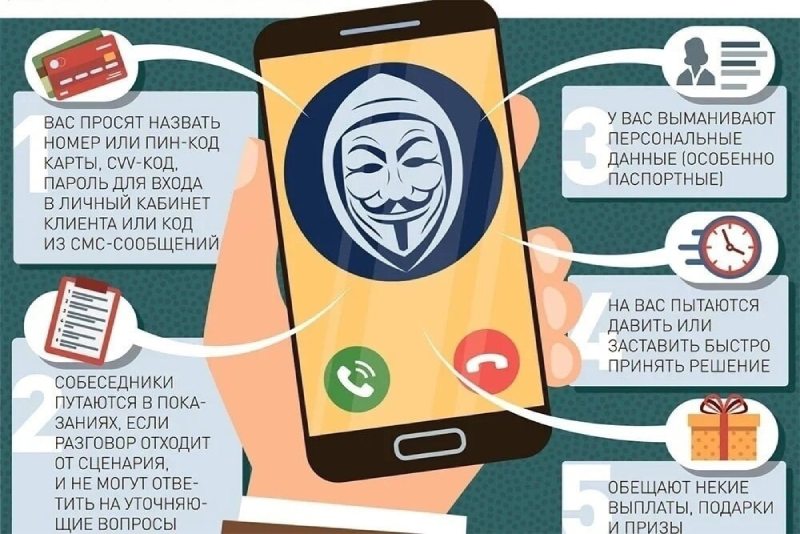Phone fraud is one of the methods of deception used by scammers to seize the money of trusting citizens. Every year, fraudsters trick millions of people. In some cases, the amount extracted from people reached more than $147,000. Let's look at the types of phone scams and how not to fall victim to fraudsters.
How they deceive by phone – the most popular methods
The most common method of deception is when scammers call and pretend to be representatives of a banking institution. Calls can come from both a regular mobile number and a short bank number. As a rule, fraudsters address the user by name and patronymic. They usually say that the person's card is blocked or a suspicious transaction was made. The scammers may have many pretexts, but the goal is one – to extract all the bank card data.
 A call that mentions an erroneous money transfer to a card or mobile account is another type of phone scam. In this case, a message about the credit of funds is actually received. But under no circumstances should you transfer the money back. Because most likely these are ordinary scammers. If a suspicious transfer is received, you should immediately contact the bank.
A call that mentions an erroneous money transfer to a card or mobile account is another type of phone scam. In this case, a message about the credit of funds is actually received. But under no circumstances should you transfer the money back. Because most likely these are ordinary scammers. If a suspicious transfer is received, you should immediately contact the bank.
Fraudsters may call their victims and tell them that they have won a large sum of money in a lottery or some valuable prize. The scammers justify this by saying that the person's number was chosen as the winner. But then the most interesting part begins: the user is asked to pay a tax on the winnings, which is usually supposed to be covered by the organizers or the winner, but only after receiving the gift.
Criminals may send out messages containing a link. The message text may contain various enticing information: offers of discounts, bonuses, sales, gifts. The mailing can contain any advertising text, the main thing is for the person to click on the link. If you open the hyperlink on your phone, an application infected with viruses is instantly automatically installed. Due to the malicious program, scammers gain access to online banking and steal money.
<h2> Modern phone scams</h2>
In recent years, fraudsters have been using a new type of scam – they call or send notifications in messengers about receiving assistance from an international organization. Thus, the fraudsters extract bank card data.
 Private entrepreneurs also need to be attentive. The criminals, posing as tax office employees, send a text message to the phone stating there is a debt. To get all the information about the debt, you need to call the number in the message. But the call to the phone number indicated in the SMS is charged. And the person who called the phone from the SMS message loses all the money from the account.
Private entrepreneurs also need to be attentive. The criminals, posing as tax office employees, send a text message to the phone stating there is a debt. To get all the information about the debt, you need to call the number in the message. But the call to the phone number indicated in the SMS is charged. And the person who called the phone from the SMS message loses all the money from the account.
There is another scam scheme – “non-existent gifts”. This method is usually used for pensioners or people with low incomes. Such fraudulent calls, at first glance, carry no threat. A person is called by criminals and told about a gift that they will send by mail. At the same time, they only require such information: last name, first name, middle name, residential address, postal code. Then the victim receives a notification about the gift's arrival at the post office. And only upon receiving the parcel does it become known that a certain amount needs to be paid for it.
Ways to protect against phone scammers
Protection from fraudulent calls involves the use of various methods. Despite their simplicity, protective methods are effective, they include actions such as:
- Blocking calls from strangers. You can use the standard settings of your smartphone or through special programs that identify unknown numbers as "spam";

- Warn elderly relatives and acquaintances not to answer calls that are unknown;
- Do not give personal information to strangers: codes from SMS, bank card details.
Also, do not click on suspicious links to receive dubious monetary rewards.
How to protect yourself from phone scams
There are several clear signs indicating that fraudsters are calling. Therefore, everyone should know how not to become a victim of a scam call.

Scammers usually reach out to their future victims themselves. If you receive a call from an unknown number, do not disclose such data as:
- Card number, PIN code, online banking account password;
- Passport details.
You should be wary if there are no answers to questions, and the person who called speaks exclusively "in a template." Fraudulent calls are accompanied by promises of gifts, payments, or prizes, as well as moral pressure on the interlocutor. Phone scams have many variations. By following these simple rules, everyone can protect their money from fraudsters. It is recommended to be careful with unknown phone calls and not to open links that come to your phone in SMS messages.
